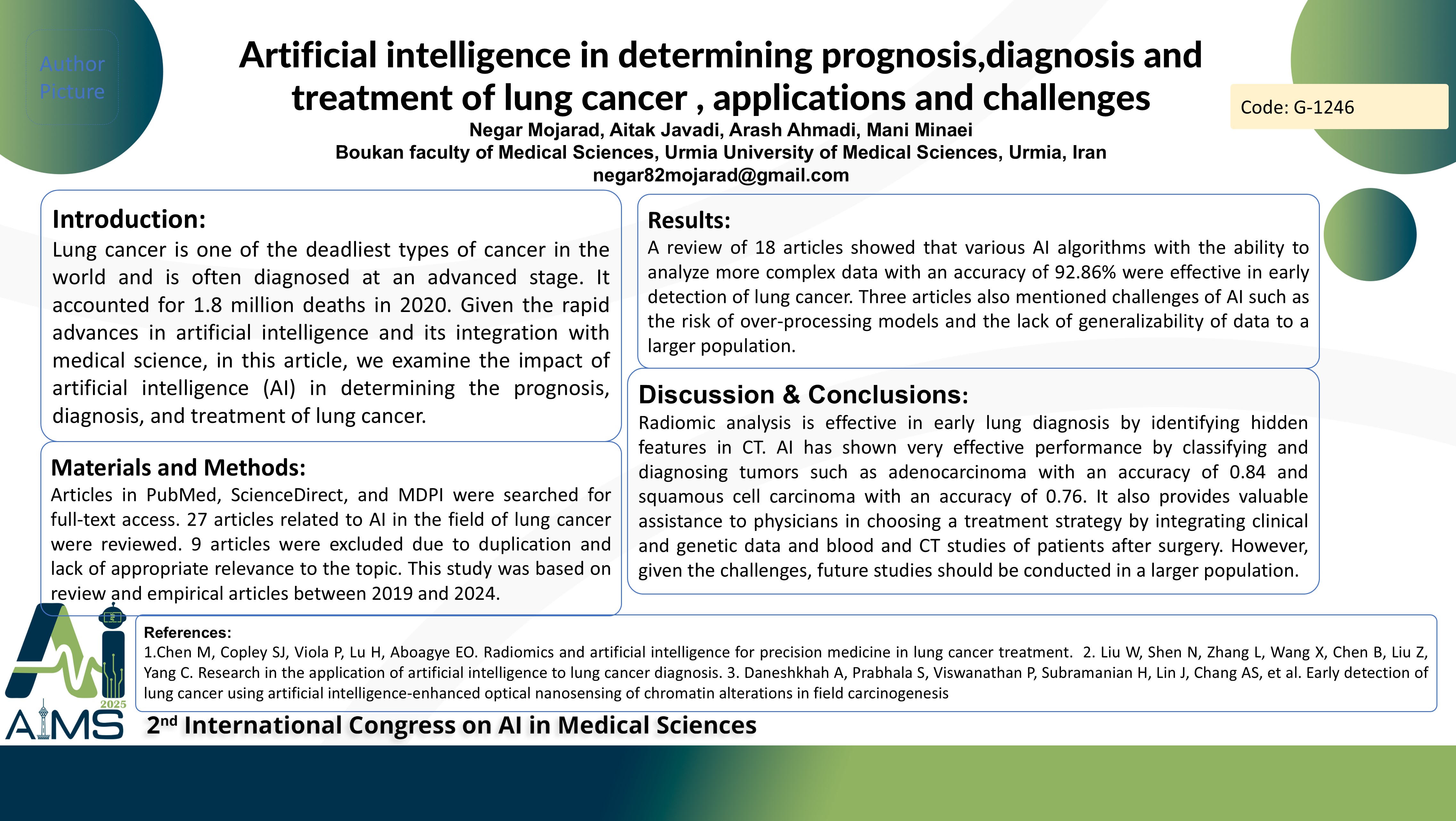هوش مصنوعی در تعیین پروگنوز، تشخیص و درمان سرطان ریه، کاربرد ها و چالش ها
کد: G-1246
نویسندگان: Negar Mojarad * ℗, Aitak Javadi, Arash Ahmadi, Mani Minaei
زمان بندی: زمان بندی نشده!
برچسب: پردازش سیگنال های پزشکی
دانلود: دانلود پوستر
خلاصه مقاله:
خلاصه مقاله
Introduction: Lung cancer is one of the deadliest types of cancer in the world and is often diagnosed at an advanced stage. It accounted for 1.8 million deaths in 2020. Given the rapid advances in artificial intelligence and its integration with medical science, in this article, we examine the impact of artificial intelligence (AI) in determining the prognosis, diagnosis, and treatment of lung cancer. Methods: Articles in PubMed, ScienceDirect, and MDPI were searched for full-text access. 27 articles related to AI in the field of lung cancer were reviewed. 9 articles were excluded due to duplication and lack of appropriate relevance to the topic. This study was based on review and empirical articles between 2019 and 2024. Results: A review of 18 articles showed that various AI algorithms with the ability to analyze more complex data with an accuracy of 92.86% were effective in early detection of lung cancer.Three articles also mentioned challenges of AI such as the risk of over-processing models and the lack of generalizability of data to a larger population. Conclusion: Radiomic analysis is effective in early lung diagnosis by identifying hidden features in CT. AI has shown very effective performance by classifying and diagnosing tumors such as adenocarcinoma with an accuracy of 0.84 and squamous cell carcinoma with an accuracy of 0.76. It also provides valuable assistance to physicians in choosing a treatment strategy by integrating clinical and genetic data and blood and CT studies of patients after surgery. However, given the challenges, future studies should be conducted in a larger population.
کلمات کلیدی
Radiomic Analysis, Lung Cancer, Artificial Intelligence
